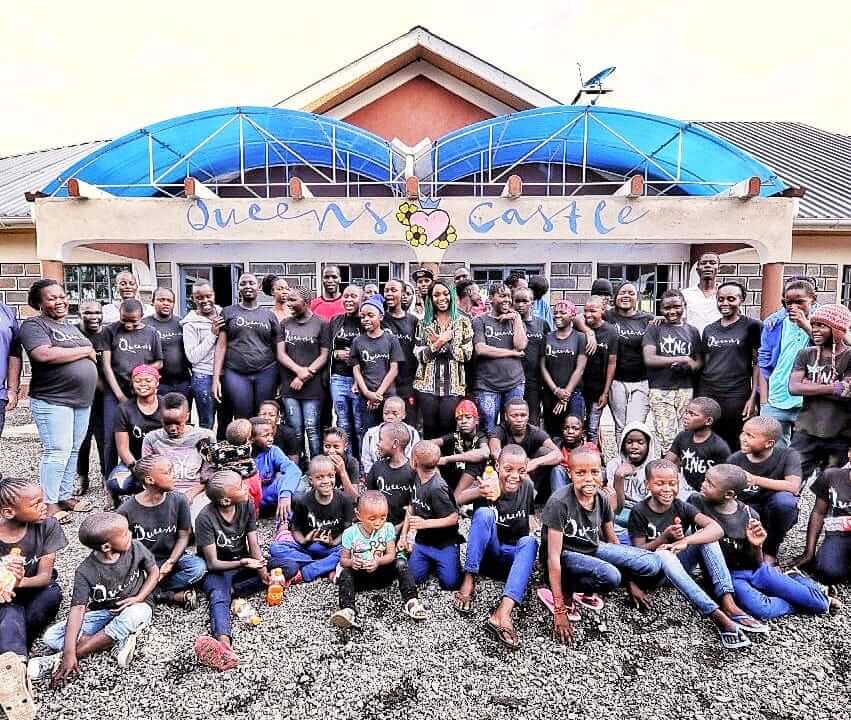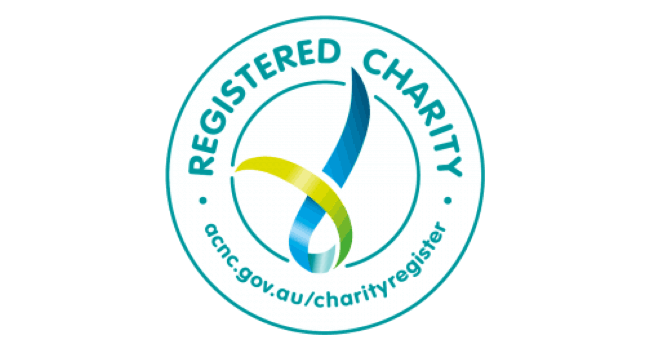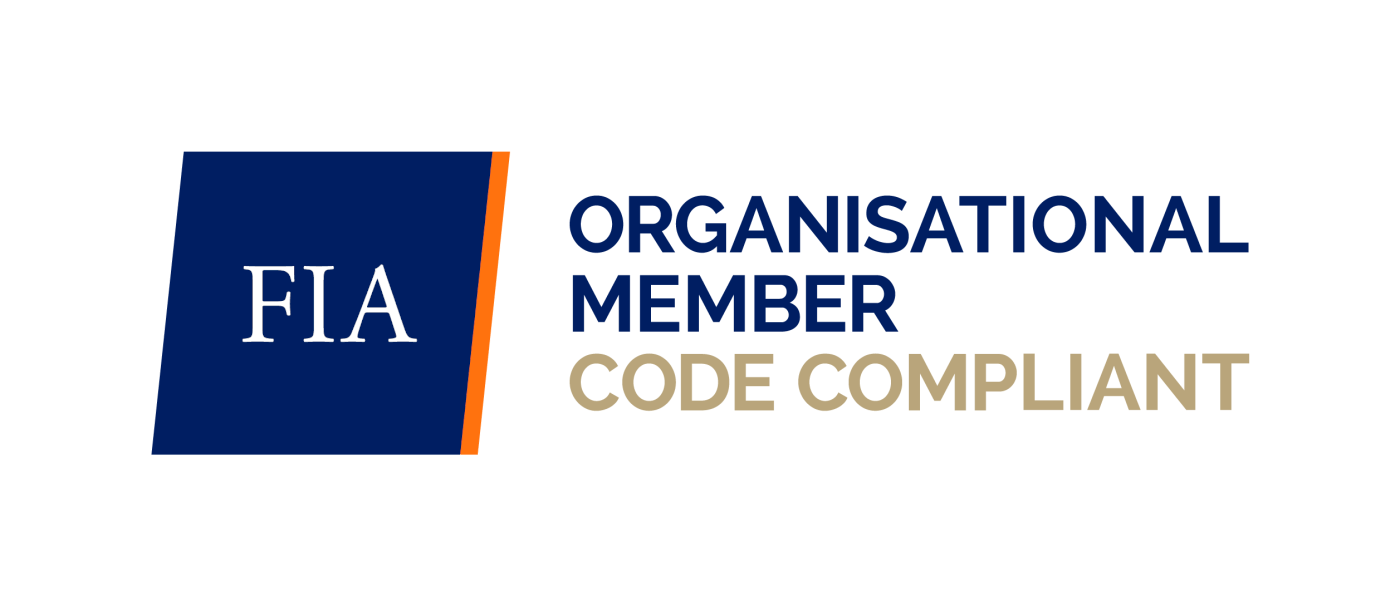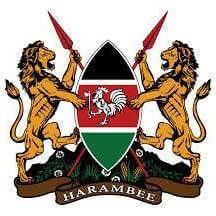
In this episode, we’re going to take a further look into Kenya. We’ll paint a picture of the reality of life in Kenya, and we’ll unpack how we ensure that we’re empowering Kenyans and not just another white saviour style charity or program.


We engaged Anne from Grapnel to do a HR skills audit and a salary survey to check in with the staff and make sure that they were being paid fairly and everything was done properly in a way that was culturally appropriate and aware. Anne shares with you some of her views from her time at Rafiki Mwema.
As we carried out our first assignment and got to engage with the staff, they have very good things to say about the environment they work in. The most interesting thing is they say that they would not imagine working anywhere else, they would just want to work for Rafiki Mwema because Rafiki Mwema cares for them in the same way they care for their children.
At the heart of working for Rafiki Mwema is the fact that they are allowed to make decisions and the fact that they are able to work with autonomy and yet feel that they are respected for the decisions they make. Sarah, who is their leader, is very compassionate over her staff.

The second factor that I think sets Rafiki apart is that ever since I’ve been part of the organisation and it hasn’t been very long, it’s been noticeable to me that all of the work, the communications, the way in which conversations are had about the Operations acknowledge that there is no superiority of skills, there is no presumption of authority that sits in Australia, and that the rightful place for leadership and decision making is within the Kenyan Operations.
The reason we all do this is because of the kids! so lets hear from one of them….

We are lucky enough to have one of our kings from Rafiki on this this episode and hear a little bit about his experience… he is such a special young man and we know he will go far in this world.

Last up on this episode we welcome a very special person. Jimmy! This man has been with us since the very beginning. He has been with us through the ups and the downs and the in betweens. He is always there when we need him, in what ever that looks like.
He is not a paid member of our staff as he will not accept any money from us, but if we need his help he will there. He runs his own safari company called Hisia Safaris. But when he is not travelling, you will find him visiting the staff and children at Doyle Farm and he will be the Chair of our newly formed NGO in Kenya once the approval has gone through 👏🏻
I’m very privileged to work in the organisation because it’s very special to have leadership that allows you to incorporate what is socially acceptable in your country with what is foreign and positive and merge the two. Which means we have a very good combination of therapeutic teachings which are very foreign and very unknown to the Kenyan concept. But now intermarried with the Kenyan concept of how children should be brought up, and the two intermarrying is one of the best results that can come out of an organisation.



Thank you to our beautiful ambassador, Stella Mwangi, for allowing us to use her incredible song, Makele on our Podcast. She continues to be an inspiration to our children and we can’t wait for her to come back and visit us at Doyle Farm.
We hope that you enjoy The Rafiki Way. Please subscribe and leave a review so others might sign up and learn about the work we do also.
Transcript
(We have not had time to check through this to ensure accuracy. please understand there might be some errors)
Speaker A: You.
Speaker B: Welcome back to the Rafiki way.
Speaker B: I’m Carly Nimo.
Speaker B: In our last episode, we looked at the Australian arm of Rafiki Mwema.
Speaker B: You met some of the people involved and heard about some of the work they’re doing, and today we’re going to head back to Kenya.
Speaker B: In episode two, we learned what life is like on the farm and how the farm functions.
Speaker B: And in the third episode, we explored the various different outreach programs that are so important to Rafiki.
Speaker B: In this episode, we’re going to take a further look into Kenya.
Speaker B: We’ll paint a picture of the reality of life in Kenya, and we’ll unpack how Rafiki ensures that they’re empowering Kenyans, not just another white savior style charity or program.
Speaker B: First up, let’s paint you a better picture about what the reality of life is like in Kenya for so many in 2012, 17% of Kenya’s population lived below $1.90 US per day.
Speaker B: This means that over 8.9 million Kenyans were in extreme poverty, most of whom were in rural areas.
Speaker B: Kenya’s poverty rates are amongst the highest in the developing world.
Speaker B: National poverty prevalence is estimated at 45%.
Speaker B: To give this some context and contrast in comparison in Australia, our 2022 Poverty in Australia Snapshot found that there are 3.3 million people, or 13.4%, living below the poverty line of 50% of median income.
Speaker B: In dollar figures, the poverty line here works out to $489 a week for a single adult and $1,027 a week for a couple with two children.
Speaker B: Just to give you some insight into the disparity between poverty in Kenya and poverty in Australia, the impact of this widespread poverty in Kenya affects so many areas, like a lack of access to safe and adequate housing, limited access to education and basic health care.
Speaker B: And these in themselves are horrific.
Speaker B: But all of these things result in increased family violence.
Speaker B: Over 40% of Kenyan women report having experienced physical or sexual intimate partner violence, and one in four have experienced it by their partner in the last twelve months.
Speaker B: Over 1.2 million children of schoolgoing age are out of school and involved in practices such as child labor to support family income.
Speaker B: There’s also a 27% primary school dropout rate related directly to poverty issues.
Speaker B: Even fewer children are enrolled in secondary school, with only about a 40% enrollment rate.
Speaker B: Child marriage rates are almost at 23% in Kenya.
Speaker B: All of these things combine to create a really unsafe place for many children in Kenya.
Speaker B: One study I read estimated the number of children living on the streets is 250,000.
Speaker B: These children have to beg and scavenge for food, have little access to safe places to sleep, they often get sick with no medical treatment, and they have no one looking out for them.
Speaker B: Many of them sniff glue and take drugs to deal with the abuse that they face on the streets, which is why Rafiki Matani, the feeding program we talked about in episode three, exists.
Speaker B: So here’s a little reminder from Bubba about the Feeding Program.
Speaker A: Feeding Program is a program that was set up or run by Rafiki Mama Therapeutic Center here in Nakuru, Kenya, and it’s a place of caring, loving and counseling that is emotionally, physically and mentally caring for the most vulnerable families from the streets of Nakuru.
Speaker A: Rafikima Madru Feeding Program has been able to support more than 100 boys and girls on a daily basis who have been neglected and hated by the society.
Speaker A: And as we speak, since this program started, we are on our way to win back the love, trust and acceptance that was long gone from the society.
Speaker B: You can check the show notes.
Speaker B: I’ve chucked some links in there to various research and studies into poverty in Kenya and the impacts, if you’re interested.
Speaker B: One thing that Rafiki has been really clear on since Day Dot is that they don’t want to come in as white saviors and teach the Kenyans the ways of the west.
Speaker B: Kenya has a really strong culture of its own, and it’s not Rafiki’s place to interfere or alter that to a Westernized way of life.
Speaker B: Rather, Rafiki exists to empower Kenyans, to help them break cycles of poverty in ways that are culturally appropriate for them.
Speaker B: White saviodom new word means that many Kenyans working with outsider agencies and charities will often tell the people in charge what they want to hear rather than the reality for fear of retribution.
Speaker B: It was really important to Rafiki to have an honest appraisal of what it’s like to work with the charity and to ensure it’s being operated in a way that’s empowering Kenyans, not colonizing them.
Speaker B: So recently, the team engaged Anne from Grapnel to do an HR skills audit and a salary survey to check in with the staff and make sure that they were being paid fairly and everything was done properly in a way that was culturally appropriate and aware.
Speaker B: So meet Anne from Grapnel.
Speaker C: Rafiki Mama hired us to carry out a comprehensive review of their organization structure and the various job rules and to carry out a skills audit as well as provide a competency framework.
Speaker C: What came across for us was really the compassion they have for their children.
Speaker C: They are passionate about their work, and it’s interesting to see such a good relationship between the staff and the children.
Speaker C: The children have a lot of respect for the staff team, and the staff team also do respect each other and work with smiles and are very friendly to everyone who comes to the center.
Speaker C: You can see the discipline that is among the children, and you can also see how well they interact with the teachers and with the carers.
Speaker C: And just to see how the team is very comfortable to work around the children and work around each other is amazing.
Speaker C: As we carried out our fast assignment and got to engage with the staff, they have very good things to say about the environment they work in.
Speaker C: And the most interesting thing is they say that they would not imagine working anywhere else, they would just want to work for Rafikimoema because Rafiki Muma cares for them in the same way they care for their children.
Speaker C: And at the heart of working for Rafiki Wema is the fact that they are allowed to make decisions and the fact that they are able to work with autonomy and yet feel that they are respected for the decisions they make.
Speaker C: Sarah, who is their leader, is very compassionate over her staff.
Speaker C: An example one of the staff gave us is that whenever they come from maternity leave and they have small children, they’re never worried about having nannies or looking for nannies because they know that they will be allowed to come with their little ones to work.
Speaker C: And so they’re able to take care of their little ones, they’re able to breastfeed their little ones even as they work.
Speaker C: That allows them to focus on work and that allows them to feel free to have their minds focused on the work that they are supposed to be doing.
Speaker C: They also give a bot examples when they’ve had colleagues who are bereaved and the fact that everyone comes through for them, including the leadership of RMTC.
Speaker C: They also talk about working in an environment where they have been allowed to grow, in an environment where there is no fear, feedback is greatly valued.
Speaker C: And you see this when you look what the staff work, especially within the feeding program where they work with street children.
Speaker C: In Kenya, street children are not viewed as friends and they are viewed as people who are out to commit crime and there’s a tendency to shun them.
Speaker C: And it’s interesting to see how Rafiki Muma staff interact with street children.
Speaker C: They have a lot of confidence in them, they have a lot of compassion and they have a lot of love for them.
Speaker C: And in turn, I think for us, it was a very huge mind shift to just sit and talk to these children and also see how protective these three children are of Rafiki Muma staff.
Speaker C: And because there’s a staff who have taken time to know them and to love them and to take care of them and feed them and even allow them an opportunity to read and write, they have also a sense of ownership over their staff in the sense that they’re very protective.
Speaker C: And I remember as we sat and interacted with the staff, they were keen to find out who we were and whether we were friends of the staff or we were people who had come to, for lack of a better word, disturb the staff.
Speaker C: And so you can see from that just by the nature of how they do their work, they are compassionate and have taken ownership of Rafikim Wema.
Speaker C: And that, for us, was just interesting to see how a work environment can be very positive.
Speaker C: And even where we are in a space where people talk about the great resignation, where staff leave because they are disengaged from their workplace, it’s interesting to see a flip where the work environment is very good for staff and they look forward to coming to work every day.
Speaker C: And they look forward to working because they can see the difference that they make with the children that they work with.
Speaker C: And most importantly and exciting for them is the fact that they’re able to reintegrate children back into their families and in a very safe space.
Speaker B: So now we’re going to introduce you to an Australian who is the board treasurer of Rafiki Muema.
Speaker D: My name is Mitali Tiagi and I’m the board treasurer of Rafiki Muema.
Speaker D: My professional background is in economics, finance, international relations and international law.
Speaker D: At the moment, I’m working with an organization that works with the 41 countries of the Asia Pacific to stop the flow of dirty money.
Speaker D: In that regard, I work with countries as small as Nue, Nauru and Palau, and as big as India, China and the United States on macro level systems and regulation.
Speaker D: So the work that I’m doing with Rafiki is very different.
Speaker D: It’s much more hands on and I’m able to look at things in a much more detailed, micro way and I’m really excited by that.
Speaker D: In the past, I’ve done a fair bit of work with technical assistance and capacity building in international or intergovernmental organizations.
Speaker D: And so I have a real passion for the way in which projects are set up to ensure respect, accountability and integrity in terms of any assistance that’s provided across countries.
Speaker D: And I’m really hoping to bring that perspective of transparency and integrity to Rafiki Moima.
Speaker D: In my mind, there are two factors that make Rafiki Moima quite special.
Speaker D: The first being that there is a scientific basis to its core activity, which is the psychological care of an incredibly vulnerable group of people, traumatized children, in a challenging context.
Speaker D: And that very medical, scientific activity has necessarily spilled out into social programs and a need to include the community and the society because there is a holistic approach to the care provided to these children.
Speaker D: And the way that Rafiki muma has grown to ensure inclusivity of the community and the society of the children is really special.
Speaker D: And the provision of psychological care to these children is at the base of the work.
Speaker D: But there is an acknowledgment that there is no such thing as emotional or psychological well being without the broader context being considered.
Speaker D: And that, I think, makes Rafiki a very special place.
Speaker D: The second factor that I think sets Rafiki apart is that ever since I’ve been part of the organization and it hasn’t been very long, it’s been noticeable to me that all of the work, the communications, the way in which conversations are had about the Operations acknowledge that there is no superiority of skills, there is no presumption of authority that sits in Australia, and that the rightful place for leadership and decision making is within the Kenyan Operations.
Speaker D: This idea that there will be a white savior that somehow will have the skills to come in and save people is something that we’ve seen for centuries.
Speaker D: And hopefully it’s becoming a rare concept now in charities and international aid structures.
Speaker D: But something tells me that that challenge is still outstanding.
Speaker D: But as far as I’ve been involved in Rafiki Murma, I’ve noticed a real respect, but also a real humility in the way that the Australian operations see their place in the broader scheme of Rafiki.
Speaker D: Muma’s work with the Kenyan operations being at the center and the way that the employment structure works is indicative of that.
Speaker D: There are 1.5 FDE employed in Australia and over 40 in Kenya.
Speaker D: So I think that’s something that is very admirable.
Speaker B: Hopefully, by now you’re starting to get an understanding of the ethos and the integrity behind the organization.
Speaker B: But now let’s take a minute to hear from someone whose life has been impacted by their own time at Rafiki.
Speaker B: It’s time to meet Brian.
Speaker B: Brian was a child who came to Rafiki from the streets.
Speaker B: And while it’s important to know that any organization you support is coming from a place of integrity, the reason we all do this is because of the kids.
Speaker B: So let’s hear a little bit about Brian’s experience.
Speaker E: I am Brian from Rafiki Mama, and I’d love to share with you a short story of mine, of my past before I joined Rafiki.
Speaker E: My mom, if you don’t mind.
Speaker E: It’s so sad to remember my past days because it wasn’t so good, it wasn’t so something that it was so enjoyable.
Speaker E: It was so sad and crow because, like, when I was living with my parents, they were used to be so violent.
Speaker E: Especially my dad.
Speaker E: When he he got drunk, he just came home feeling so violent.
Speaker E: He was so angry with me without even doing any mistake or anything.
Speaker E: And then when he beats me, my mom tries to help me and then we are beaten together.
Speaker E: That heartbroke me so much.
Speaker E: That’s when I decided that at least I will have to find a new place and try to find a life.
Speaker E: Because at home I never felt the love.
Speaker E: Sometimes I thought like the people who are saying that home sweet home were just being saying nothing that they know.
Speaker E: Because I never felt the love of my parents.
Speaker E: And so when I went to town thinking that I’ll find a new place, place whereby I know people are minding their own businesses, it’s whereby I knew that I was just wrong because I found another cruelty.
Speaker E: I found the harsh conditions there, like rain, sleeping on sacks, sleeping on the roads whereby people are passing by.
Speaker E: Police brutality.
Speaker E: They were just beating us.
Speaker E: And the people that we depended on to give us food, they never liked to see us.
Speaker E: They never wanted to even see our faces going to beg for food.
Speaker E: And that made my life so hard.
Speaker E: Sometimes I even wish that I could just be caught with by the police so that I can go in the cells, so that I can have the free food, because only food worried me and even the hostility there.
Speaker E: I used to be so sick because of the rain, because of the cold, and such a thing fights among ourselves, like my brothers there.
Speaker E: And it used to be so hard.
Speaker E: Rafiki Mama has really changed my life positively.
Speaker E: When I came to Rafiki Mama, like, I didn’t say this, I was negative, always negative.
Speaker E: I knew that people are not good.
Speaker E: I knew that going to young people is not something that is okay because of the police brutality.
Speaker E: So, like, everyone is not friendly with me.
Speaker E: Even I developed Staying alone like an introvert a bit.
Speaker E: But when I came here and they showed me a therapy, they showed me how we can interact, they even changed my communication skills.
Speaker E: They even changed the way I interact with people.
Speaker E: They changed my mentality that even when you are down, even when you are poor, there’s still something that you can do in your life.
Speaker E: There are so much people that are caring for you to help you step to another level of life.
Speaker E: And that really motivates me to even want that motivated me.
Speaker E: One day, I’ll say that one day when I get table, I want to start something like trafficking Wema, even if it is partnering with them, even if it is coming back to sponsor them, because people out here in Kenya are less fortunate and they need people who can help them, but this is not what they find.
Speaker E: So a family like Trafiki memoir is helping them by visiting them, like in the streets, feeding them and helping them in some kind of ways.
Speaker E: And that is so helpful.
Speaker B: And lastly, we’re going to hear from Jimmy, who is the current chair at Kenya.
Speaker B: He’s been involved in the organization since the very beginning.
Speaker B: So meet Jimmy.
Speaker F: Working in Rafiki Wema is one of the venues that you work with a difference, where I’m talking of working with therapy as part of your job, where you are using therapy to talk to those kids, to talk to the members of staff with everyone around you, therapy is very much embraced.
Speaker F: So which means kids who are victims do not feel victimized, attacked, or even judged by what happened.
Speaker F: And I think that is very key for all our kids.
Speaker F: That’s the feeling they feel.
Speaker F: And I think I’m very privileged to be among the organ to work in the organization because it’s very special to have leadership that allows you to incorporate what is socially acceptable in your country with what is foreign and positive and merge the two.
Speaker F: Which means we have a very good combination of therapeutic teachings which are very foreign and very unknown to the Kenyan concept.
Speaker F: But now intermarried with the Kenyan concept of how children should be brought up, and the two intermarrying is one of the best results that can come out of an organization.
Speaker F: And this is happening in Rafiki muma.
Speaker B: And that’s almost a wrap of this episode.
Speaker B: But before we go, Rafiki has a trek coming up.
Speaker B: So if this is your kind of thing, get involved.
Speaker B: These are such great experiences for you, but it’s also a really fabulous way to help fund the work that Rafiki do.
Speaker B: So Lou from the Australian team is going to tell us a little bit more about this trek and how you can get involved.
Speaker G: Hi, I’m Lou and I just wanted to share some information on our next trek with inspired adventures.
Speaker G: It’s super exciting.
Speaker G: The last trek we held was really successful and the supporters that went had an amazing experience.
Speaker G: So this next trek that we will be launching is to the Scenic Rim, which is one of Lonely Planet’s top ten places in the world.
Speaker G: But it’s right here in Australia.
Speaker G: It’s a three day, 30K trek through the Scenic Rim and it’s quite achievable in terms of time and location.
Speaker G: So it’s only three days in November, it’s easy to get to.
Speaker G: It’s about a medium grade challenge, so a three out of five, and there’s a $3,000 fundraising target which allows us to put more funds to our programs in Kenya, because nearly half of Kenya’s population lives in poverty and it’s putting the kids there at far greater risk of abuse and exploitation.
Speaker G: And really, it’s quite tragic that one in three girls experience sexual violence during their childhood and thousands of children live on the street.
Speaker G: This is something that we are trying to change, but it’s only through the support of the people around us who undertake things like the trek that we can keep funding the work that we do.
Speaker G: So it is a really beautiful trek that you’re going on.
Speaker G: It’s in the Gold Coast, it’s what they call a thriving rural paradise and it’s in the foothills of the Great Dividing Range.
Speaker G: So you’ll be supported by a local guide, you’ll meet all the fellow travelers, like people who are coming with you, mostly people from the networks of Rafiki.
Speaker G: Wema, people who want to make a difference.
Speaker G: So it’s a really like minded group of people and basically, you will explore the area through the mountains, through the rainforest, climbing up through Fasofan Valley and looking at views of Lake Mugara.
Speaker G: It’s just an amazing trip and like I said, it’s one of the top ten Lonely Planets destinations in the world, so we’re pretty lucky to have it right here on our doorstep.
Speaker G: If you’re interested in being involved, head over to our website and you’ll find some info there or just get in touch with us.
Speaker G: We would love you for you to.
Speaker B: Join us and stay tuned, because coming up soon, you’re going to hear from all of the ambassadors behind the scenes, the people that you know and love who have helped to raise the profile of Rafiki.
Speaker B: See you then.





